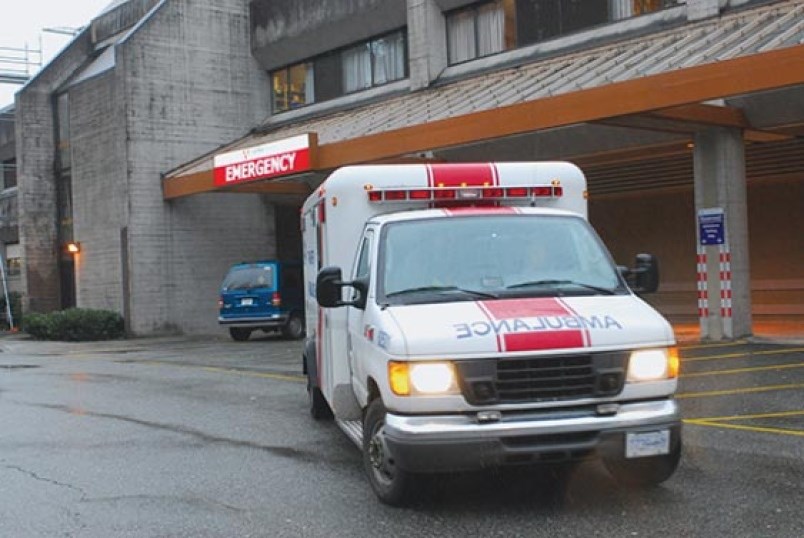The city of Port Coquitlam announced a new 911 protocol for city facilities this week, spelling out what city staff should do in the event of a medical emergency — and the new directive contradicts a memo the fire chief issued last month.
In the March memo, PoCo Fire Chief Nick Delmonico directed city staff, in case of a medical emergency at a city facility, to call 911 and ask for "fire."
The memo was written in response to what Mayor Brad West and Delmonico said were ambulance wait times that far exceeded other parts of Metro Vancouver.
News of the memo sparked a strong response from BC Emergency Health Services (BCEHS) as well as several unions representing paramedics as far away as Ontario. Any delay in calling the ambulance service, they said, could cost lives.
But just as the memo set off a fresh round of controversy last week, BCEHS CEO Barb Fitzsimmons spoke with Delmonico, slowly defusing what Mayor West described as “pissing matches between groups of first responders.”
By now directing city staff to call for an ambulance first, Delmonico has assuaged BCEHS’s number one concern, that callers wouldn’t get timely medical advice to clear a blocked airway or perform CPR on someone suffering from cardiac arrest.
Delmonico’s new two-stage 911 protocol directs city staff to call BCEHS first, thereby giving them access to a call-taker trained to provide medical advice until help can arrive.
Callers would first be asked some basic questions, like where they are, their phone number, as well as the age, weight and status of the person suffering the medical emergency, said BCEHS spokesperson Shannon Miller.
“If it's a serious case, like CPR is needed, then we start giving those instructions to people on the phone,” she said.
Under the standard protocol, whenever someone calls 911 and asks for the ambulance, the call taker codes the call based on how severe the medical emergency is.
If it’s a life-threatening case, like cardiac arrest, or a car accident where paramedics don’t have the tools or expertise to remove the injured from a crushed vehicle, then an automatic electronic notification gets sent to fire dispatch in Surrey, whose dispatchers then notify Port Coquitlam Fire and Emergency.
But under PoCo’s new protocol for medical emergencies at city facilities — which in addition to city hall, includes recreation centres and pools — Delmonico is directing city staff to make a separate, second call to muster firefighters to the scene.
“This win-win solution was the result of the productive discussions we had this past week with BC Emergency Health Services,” and Delmonico in a press release, adding
In the release, Delmonico also said the city’s primary concern has always been to ensure that its staff members get the support they need and that residents get the best, fastest care possible.
"This new process ensures that a fire resource will attend the site regardless of how BC Ambulance Service codes serious medical calls," said Delmonico in an email to The Tri-City News today.
But while the new protocol addresses BCEHS’s primary issue, Miller said the organization is still concerned with the prospect that PoCo firefighters won’t be available when the ambulance service needs their quick response time and expertise.
“If we notify fire for a motor-vehicle incident and they are tied up in a non-urgent call, they [will be] unavailable for when we need them most,” said the BCEHS spokesperson. “I guess at this point we're seeing if a call comes up where this happens.”
Stefan Labbé



